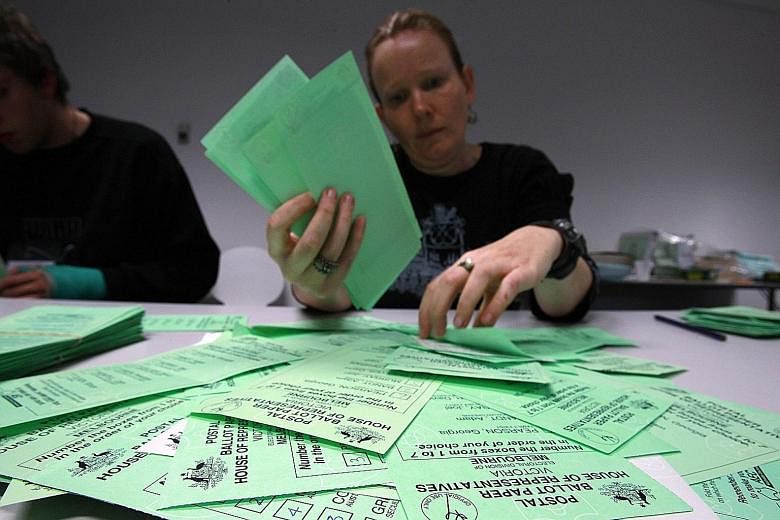When Australians go to the polling booths on July 2, they will be confronted by enormous ballot papers which contain a seemingly endless list of candidates.
On offer at this general election is a typically diverse mix of so-called micro-parties, including the Pirate Party, the Sex Party, the Science Party and the Shooters, Fishers and Farmers Party.
In the largest state of New South Wales, 151 candidates are competing this year for 12 Senate seats. There are parties for cyclists, divorced parents, the elderly, Christians, atheists, legalising marijuana and legalising euthanasia.
None of these parties has any real chance of winning a seat in the Lower House, which is based on overall winners of local electorates.
But they have a better chance in the state-based Senate, or Upper House, which is based on proportionate representation.
Typically, no party has a majority in the Senate, which means the ruling party needs to negotiate with smaller parties and independents to pass legislation. This has at times led to gridlocks and stalled legislation, prompting some critics to decry the micro-parties.
This is set to change with new rules put in place by the ruling coalition to try to prevent smaller parties from winning seats by swopping their unused votes with other parties. This had led to parties gaining a seat with only a tiny direct vote, such as the Australian Motoring Enthusiast party which received 0.51 per cent of the votes in Victoria state in 2013 but won by receiving votes from other small parties.
At this election, voters will be required to choose either their six top candidates in order of preference - rather than just one under the old rules - or to choose at least 12 in order of preference. Vote swops between parties will not be allowed.
But sceptics are unsure that this method will work.
"The new-look Senate could be just as dysfunctional as the madhouse that created havoc with the economy under the previous government," political commentator Simon Benson wrote in Sydney's Daily Telegraph yesterday.
"Up to eight Senate micro-party independents could be elected on July 2 in what could be an even bigger Upper House nightmare ball for the next government."
Smaller parties that could do well at this election include the libertarian Liberal Democrats, the conservative Family First party, the progressive Sex Party, and numerous parties representing prominent independents such as MP Jacqui Lambie and right-wing firebrand Pauline Hanson.
A new party formed by popular independent MP Nick Xenophon is polling well in his home state of South Australia and could pick up as many as six seats across the country. The Greens, which are now more of a minor party than a micro- party, is tipped to win about nine seats.
An expert on Australian politics, Professor Rodney Smith of Sydney University, said the country had a particularly stable two-party system, in which either Labor or the Liberal-National Coalition would form the government. But the small parties in the Senate allowed people to register a "protest", particularly voters who do not favour the major parties.
"If you look at a number of Western democracies, there has been fragmentation and new parties and old parties splitting up - but that hasn't happened in Australia," he told The Straits Times.
"We don't have the rise of big alternative parties. I suspect that instead you get a protest - you get people saying they don't like (Prime Minister) Malcolm Turnbull or Labor and will pick some other party. They pick a party at random."


